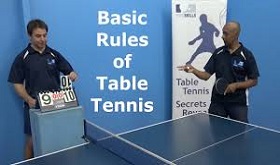People in esports often get tired of making constant comparisons to traditional sports. However, the growing popularity of competitive gaming can often serve as a model for more traditional sports.
Organizations have launched projects in the hope of creating a more diverse gaming environment, despite the fact that the industry as a whole is still dominated by men.
The Valorant Game Changers initiative, which aims to provide a platform for marginalized genders to compete and grow into professional players, is an illustration of this.
Valorant is a first-person shooter developed by Riot Games, creators of League of Legends, with approximately 12 million monthly players.
Alongside the main competition, the Game Changers series aims to develop underrepresented talent in a secure setting free of potential harassment.
Vera Wienken, Senior Brand Manager at Riot Games, has worked closely on the project’s launch and claims that it has already been a success.
She stated to CNN Sport, “It is very important for us to have real representation of the community within esports, within our professional players, coaches, and managers.”
“In this manner, we established Huge advantages and truly desire to see that, later on, esports generally speaking turns out to be more assorted.”
You don’t have to sing it to the entire world
Wienken asserts that female participation in Valorant and esports as a whole can only be attained and sustained through representation.
Wienken believes that because Valorant is a new game, its format and story will appeal to a broader audience.
According to Wienken, the game is more accessible because the characters you can play as don’t always fit gender stereotypes.
When asked about the reason why the industry still attracts fewer women than men, she added, “There is a lack of role models.”
“What we would like to see and what is already happening, which is amazing, is that these women pro players are becoming role models for others and sharing their path, sharing their story so that women know where to start and find their entry points,” says one of the team’s representatives.
During her esports career, Valorant EMEA host Yinsu Collins was one of many to experience online harassment, but she claims to have developed a thick skin so that she can ignore it.
The journalist, who previously held a position in traditional sports media, claims that Valorant has contributed to the industry’s awareness of the discrimination faced by marginalized groups.
She stated to CNN Sport, “I don’t think I’ve ever seen a title that has produced and invested in a female scene this quickly.”
Riot’s response was: The women’s side will be given priority. We won’t delay giving you guys a big tournament for three or four years. We’re about to do it without skipping a beat.’
I simply believe that Riot places a premium on diversity through its dedication and investment.
“And you just do it through your actions, not sing it to the world.”
How does progress appear?
Collins has seen people reflect on their actions in the past in addition to receiving negative messages on social media.
She says she periodically receives messages from young men who need to apologize for specific things they’ve said or the manner in which they’ve acted web-based before.
“Ideally, in a couple of years, perhaps 10 years’ time, we wouldn’t need to discuss portrayal since it would simply be something typical,” Collins added.
Wienken says Major advantages enormously affects how much ladies playing and watching the game and there is something else to come from the drive, with the current year’s send off of the Distinct advantages Institute.
This new, local area driven design desires to go about as a venturing stone for young ladies who are keen on making it as an expert esports player.
By making these new passage focuses for ladies, Wienken trusts that there won’t be a requirement for female-drove ventures, for example, the one she works with from now on.
She went on to say, “I hope that we don’t see gender anymore when we are looking at the professional players,” and “I hope that we don’t even need Game Changers in the future because it’s just so normal that esports is diverse.”
Collins believes that progress is all about how the media and society as a whole portray women in esports.
She is aware that it will take time, but she is looking forward to the day when women in the industry will no longer be asked to discuss their gender.
“I want the conversations to be about how the competition is amazing, this player has a great personality, or just the crazy storylines every time we talk about Game Changers or when a talent line-up is announced. essentially in the same way that we discuss men’s sports,” she stated.
“I think I’ll be pretty satisfied if we can get to the point where women’s esports and female talent are not just talked about because of their gender, but also because they are good at what they do,”


